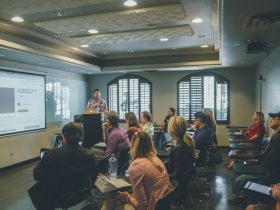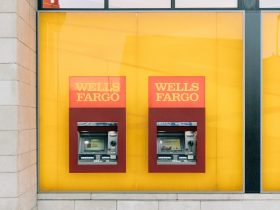Welcome back, ethical spenders! Today, we’re diving into a topic that’s close to my heart and crucial in this day and age: integrating ethical learning into financial literacy programs. We’re all about making those dollars count not just for our wallets, but also for the world around us. So, grab your favorite ethical brew and let’s get into it.

The Intersection of Ethics and Financial Literacy
Before we delve into the nitty-gritty, let’s understand why this fusion is crucial. We all know the significance of being financially literate, understanding budgets, savings, and investments. But in a world grappling with environmental issues, social injustice, and economic disparities, it’s imperative to foster an understanding of how our financial choices can impact society.
Understanding the Basics
Before we jump to the integration, let’s touch upon some key ethical considerations to keep in mind:
Sustainability Matters: Seek financial options that promote sustainability. Look for companies and investments that adhere to eco-friendly practices and promote resource conservation.
Social Responsibility: Support businesses that prioritize fair labor practices and uphold human rights. This means looking for companies that treat their employees fairly and provide safe working conditions.
Community Support: Consider local businesses that contribute positively to the community. By supporting them, you’re investing in the growth of your neighborhood.
A How-to Guide for Ethical Integration
Now, let’s outline how to seamlessly blend ethical learning into financial literacy programs:
Incorporate Real-life Case Studies
Understanding concepts becomes easier when we can relate them to real-life scenarios. Incorporate case studies that highlight the impact of ethical investments on communities and the environment. For example, discuss how a company’s commitment to renewable energy sources can significantly reduce carbon footprints.
Guest Speakers and Workshops
Bringing in experts from ethical investment firms, sustainability organizations, or social enterprises can provide students with invaluable insights. These guest speakers can share their experiences, challenges, and success stories, making the learning process more engaging and practical.

Simulated Ethical Investment Games
Who says learning can’t be fun? Create simulated games where participants make investment decisions based on ethical parameters. This interactive approach can help students understand the consequences of their financial choices in a risk-free environment.
Field Trips and Volunteering Programs
Encourage students to participate in field trips to local sustainable businesses or volunteer for community service projects. This hands-on experience can deepen their understanding of how ethical practices translate into real-world impact.
Curriculum Integration
Infuse ethical learning into the core curriculum. Develop modules that explicitly teach the importance of ethical investments, ethical banking practices, and the impact of consumerism on society. By embedding ethical considerations into the curriculum, students are more likely to grasp the significance of their financial decisions.
Examples of Ethical Integration in Financial Literacy Programs
Let’s take a look at how some institutions have successfully integrated ethical learning into their financial literacy programs:
The Green Finance Initiative at City University
City University’s Green Finance Initiative provides students with hands-on experience in sustainable finance through workshops, seminars, and internships with leading environmental organizations. The program emphasizes the importance of ethical investments in mitigating climate change and promoting sustainable development.
The Community Investment Project at XYZ High School
XYZ High School’s Community Investment Project encourages students to allocate a portion of their virtual investment portfolio to local businesses that have a positive social impact. Through this project, students learn how their financial decisions can contribute to the well-being of their community.
The Ethical Consumerism Course at ABC College
ABC College’s Ethical Consumerism Course equips students with the knowledge and skills needed to make informed and ethical consumer choices. The course covers topics such as fair trade, sustainable shopping practices, and the impact of consumer behavior on global supply chains.
The Impact of Ethical Financial Literacy
Integrating ethical learning into financial literacy programs can have a profound impact on individuals and society as a whole. Not only does it foster responsible financial decision-making, but it also cultivates a generation of mindful consumers and investors who prioritize the well-being of both people and the planet.
By empowering individuals with the tools to make ethical financial choices, we pave the way for a more sustainable and equitable future. Remember, every dollar spent ethically is a vote for a better world.
As we wrap up, I encourage you all to embark on this journey of ethical financial literacy with an open mind and a heart committed to making a positive impact. Together, let’s build a future where financial success goes hand in hand with ethical responsibility.
Stay ethically conscious, folks! Until next time!
Lily Dawson
That’s all for today, folks! Join me next time as we unravel more exciting ways to infuse ethics into our financial lives.

































